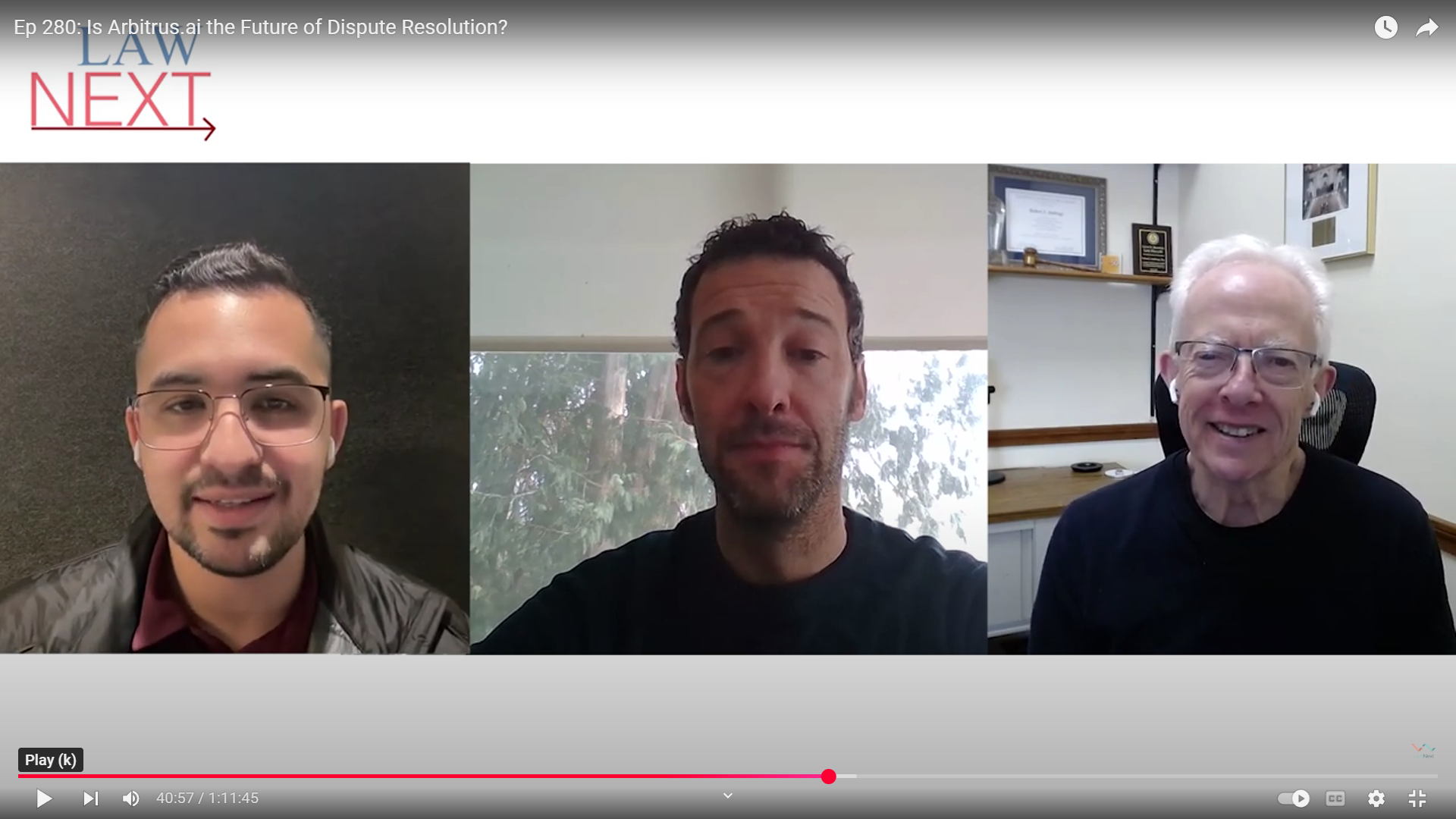Earlier this month, a legal tech startup called Fortuna Arbitration launched what it says is the first true AI judge – an automated arbitration system called Arbitrus.ai that the company claims can fully replace human arbitrators in resolving legal disputes. The system promises to cut the cost of arbitration from an average of $100,000 to just $10,000, while delivering consistent, unbiased decisions within 72 hours.
On this week’s LawNext, our guests are two of the founders behind this ambitious project. Brian Potts is a partner at Husch Blackwell and an experienced commercial litigator. He is also the inventor of the LegalBoard, a computer keyboard designed for lawyers that was wildly popular when it launched. And Kimo Gandall is the CEO of Fortuna Arbitration and a current third-year Harvard Law student who, along with third co-founder Kenny McLaren, has been working on AI legal prediction systems since well before he went to law school.
They’ve published their testing of Arbitrus, showing zero hallucinations across 100 test cases. They believe their system will not only make arbitration faster and cheaper, but could eventually evolve into what they call an ‘Arbitration State’ – a private legal system that could handle a significant portion of disputes that currently clog our courts.
Is this AI judge the future of dispute resolution? Or are there fundamental aspects of legal decision-making that require human judgment? In today’s episode, we’ll explore these questions and more.
Listen here:
Or watch here:
Thank You To Our Sponsors
This episode of LawNext is generously made possible by our sponsors. We appreciate their support and hope you will check them out.
-
Paradigm, home to the practice management platforms PracticePanther, Bill4Time, MerusCase and LollyLaw; the e-payments platform Headnote; and the legal accounting software TrustBooks.
-
Briefpoint, eliminating routine discovery response and request drafting tasks so you can focus on drafting what matters (or just make it home for dinner).
-
LEX Reception, Never miss a call, with expert answering service for Lawyers.
-
Legalweek, March 24-27, New York Hilton Midtown. Register today at legalweekshow.com.
If you enjoy listening to LawNext, please leave us a review wherever you listen to podcasts.
 Robert Ambrogi Blog
Robert Ambrogi Blog